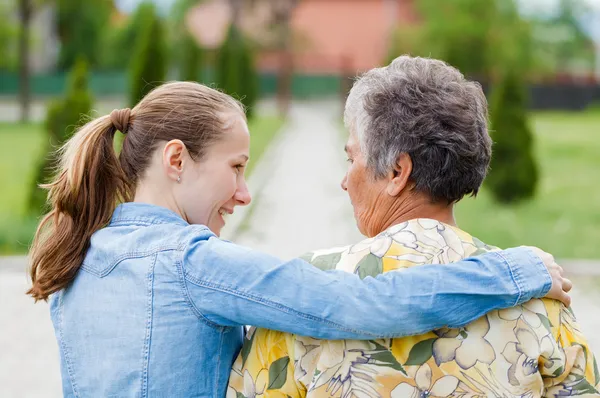- FREE Express Shipping On Orders $99+

The Role and Challenges of Caretakers for the Elderly
Caretakers play a crucial role in providing essential support and assistance to elderly individuals who may require help with daily activities, medical care, or emotional support. As the global population ages, the demand for caretakers for the elderly is growing, highlighting the importance of recognizing their contributions and addressing the challenges they face. This blog explores the role of caretakers in elderly in Mumbai care, the challenges they encounter, and the importance of support systems for both caretakers and the elderly.
The Role of Caretakers
Caretakers for the elderly undertake a variety of responsibilities aimed at ensuring the well-being and comfort of their clients. Their role extends beyond basic caregiving tasks to encompass emotional support, companionship, and advocacy for the elderly’s needs. Here are some key aspects of the caretaker role:
Personal Care Assistance
Caretakers assist elderly individuals with activities of daily living (ADLs), such as bathing, dressing, grooming, and toileting. They ensure that their clients maintain personal hygiene and physical well-being, promoting independence while offering necessary support.
Medication Management
Many elderly individuals require assistance with medication administration, including dosage management, adherence to prescription schedules, and monitoring for side effects or interactions. Caretakers play a critical role in ensuring medication safety and compliance.
Medical Monitoring and Support
For elderly individuals with chronic illnesses or medical conditions, caretakers may provide ongoing monitoring of vital signs, symptoms, and health status. They may also coordinate medical appointments, communicate with healthcare providers, and facilitate access to necessary medical care.
Emotional and Social Support
Caretakers often serve as companions for elderly individuals, offering emotional support, social interaction, and mental stimulation. They engage in conversations, recreational activities, and outings to combat loneliness and promote mental well-being.
Household Management
In addition to caregiving tasks, caretakers may be responsible for household chores such as cooking, cleaning, laundry, and grocery shopping. These responsibilities ensure that the elderly individual resides in a safe, comfortable, and organized environment.
Challenges Faced by Caretakers
Despite the fulfilling nature of their role, caretakers encounter several challenges that can impact their well-being and ability to provide effective care:
Physical Demands
Caretaking often involves physically demanding tasks, such as lifting, assisting with mobility, and performing repetitive movements. Over time, these tasks can lead to physical strain, injuries, and musculoskeletal issues if proper techniques and support mechanisms are not employed.
Emotional Stress and Burnout
Caretakers may experience emotional stress and burnout due to the demanding nature of their role, the emotional toll of witnessing their clients’ decline in health, and the pressure of balancing caregiving with personal responsibilities. Burnout can manifest as exhaustion, frustration, compassion fatigue, and feelings of guilt or inadequacy.
Financial Constraints
Many caretakers face financial challenges, including low wages, lack of benefits such as health insurance or retirement plans, and limited opportunities for career advancement. The financial strain can contribute to job dissatisfaction and turnover among caretakers, impacting the continuity and quality of care for elderly individuals.
Lack of Training and Resources
Effective caregiving requires specialized skills and knowledge in areas such as gerontology, dementia care, medication management, and communication techniques. However, caretakers may receive inadequate training and access to resources, limiting their ability to provide optimal care and support for elderly clients.
Social Isolation
Caretakers may experience social isolation and limited opportunities for personal relationships or leisure activities due to the demanding nature of their job. This isolation can further contribute to stress, loneliness, and feelings of being overwhelmed or unsupported.
The Importance of Support Systems for Caretakers
Recognizing and addressing the challenges faced by caretakers is essential to ensure their well-being and enhance the quality of care provided to elderly individuals. Support systems for caretakers should encompass the following aspects:
Training and Education
Investing in comprehensive training programs for caretakers enhances their skills, confidence, and competence in providing specialized care for elderly clients. Training should cover topics such as dementia care, communication strategies, safety protocols, and self-care techniques to prevent burnout.
Emotional and Psychological Support
Caretakers benefit from access to counseling services, peer support groups, and mental health resources to cope with the emotional stress and challenges of their role. Providing outlets for caretakers to share experiences, seek guidance, and receive validation can promote resilience and well-being.
Workplace Support and Benefits
Employers of caretakers should offer competitive wages, benefits packages, and opportunities for career development to attract and retain qualified professionals. Creating a supportive work environment with clear communication channels, recognition programs, and flexible scheduling options improves job satisfaction and reduces turnover rates.
Respite Care Services
Respite care services provide temporary relief for caretakers by allowing them to take breaks, attend to personal matters, and recharge physically and emotionally. Respite care can be provided in-home, through adult day care centers, or by temporary placement in residential facilities, ensuring continuity of care while prioritizing caretaker well-being.
Advocacy and Policy Initiatives
Advocacy efforts are crucial to raise awareness of the contributions of caretakers, promote policy reforms that support fair wages and working conditions, and increase funding for elderly care services. Collaborating with policymakers, healthcare organizations, and community stakeholders can drive systemic changes to better support caretakers and improve outcomes for elderly individuals.
Caretakers play a vital role in supporting the independence, dignity, and well-being of elderly individuals. Their dedication, compassion, and commitment contribute significantly to the quality of life for aging populations worldwide. By addressing the challenges faced by caretakers and strengthening support systems, societies can ensure that elderly individuals receive compassionate and effective care while caretakers are empowered to thrive in their roles. Investing in caregiver training, promoting workplace support, advocating for policy reforms, and fostering a culture of appreciation are essential steps towards building a sustainable and inclusive caregiving workforce for the future.
